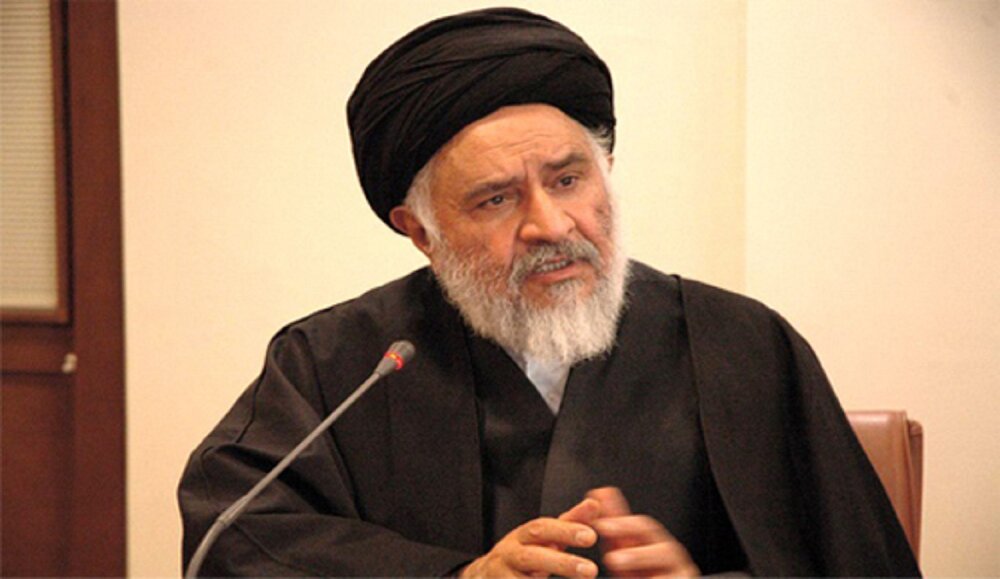Hawzah News Agency –Ayat. Mostafa Mohaqeq Damad, the chairperson of Islamic Studies at the Academy of Sciences of the Islamic Republic of Iran, stressed on jurists’ command of religious rules in a meeting with a group of seminary students and jurisprudence experts. “There are various chapters in the jurisprudence of politics such as al-Aman (security) and al-Anfal (spoils), which look at different issues like the rights of those killed in war. However, jurists fail to take adequate heed of Islamic speculative matters”.
Referring to some speculative schools like the Mu‘tazelites (promoters of schism) and Ash‘arites (the foremost theological school in Sunni Islam named after its founding thinker, al-Ash‘ari), he maintained, “if we understand the influence of speculative regulations, lots of jurisprudential problems will be resolved. For instance, issues like public property need to be publicized so that everybody knows it does not have anything to do with voluntary charity (Sadaqah), rather it deals with production and employment”.
The Islamic scholar further noted that all references and books on International Relations needed to be closely studied, adding that there were certain sections in jurisprudence of politics such as jurisprudence of citizenship, human rights, administrative law, etc., which were missing in scholarly sources. “Nahj al-Balagha (the best-known collection of sermons, letters, and sayings attributed to Ali ibn Abitalib (AS), the first Shia Imam) has covered all these issues. In this book, Imam Ali (AS) discussed different types of freedom for people and their right to criticize the ruler”.
Mohaqeq Damad declared that knowing the Old and New Testaments could pave the way for a better interpretation of the holy Quran, adding, “rulers cannot run countries with secondary, temporary, and conditional orders”. Drawing attention to respecting the sovereignty of states as the first prerequisite for membership in the United Nations, he called for international jurisprudence experts to specify Iran’s standing in the global village.
He wrapped up his remarks by a statement on freedom: “Freedom of expression is a fundamental condition to run a country. Therefore, everyone should speak and be heard, even followers of other faiths and nonbelievers.”

Weekly meeting of ‘Bar Karaneh Fiqh’ (On the Coast of Jurisprudence) has been held to discuss methodology of Ijtihad in jurisprudence of politics in Alem-e Al-e Muhammad Jurisprudence Postgraduate School.

Your Comment